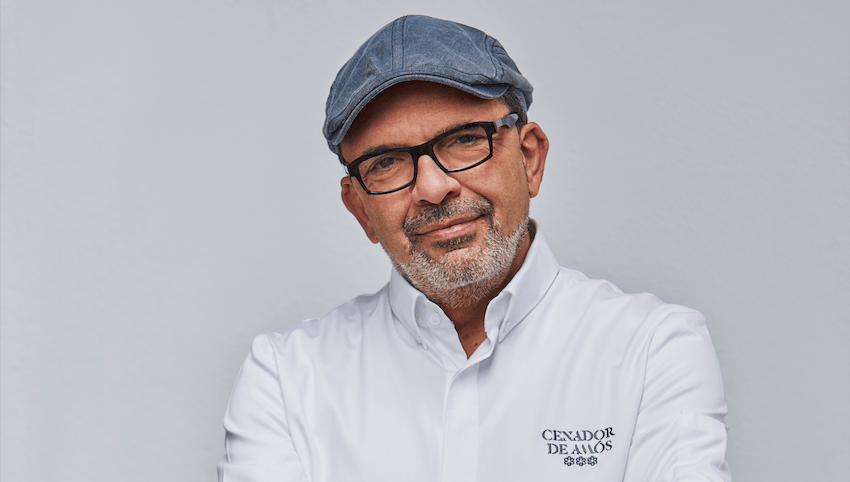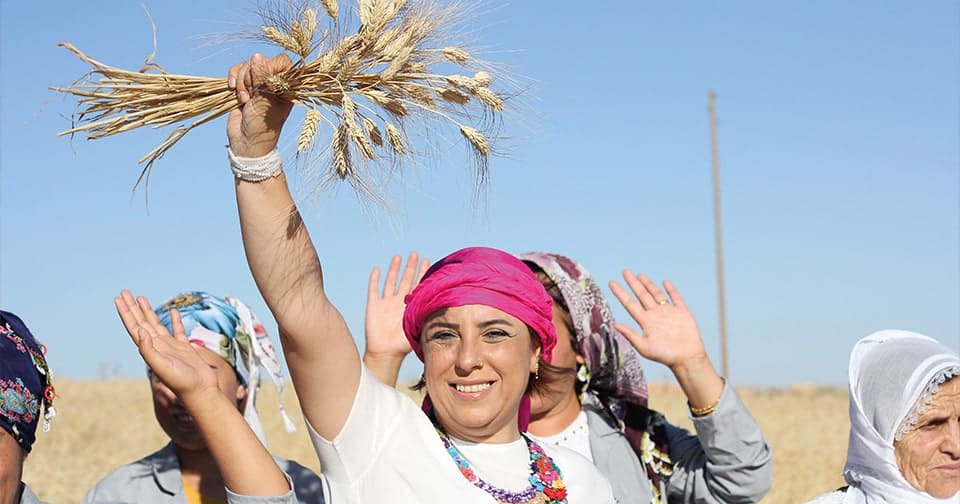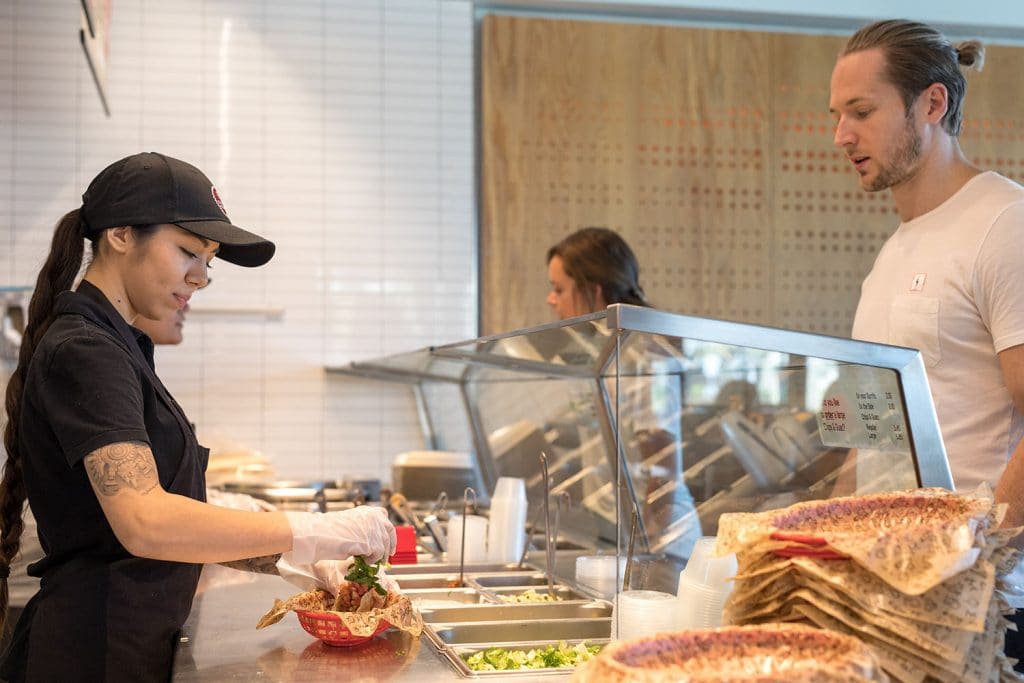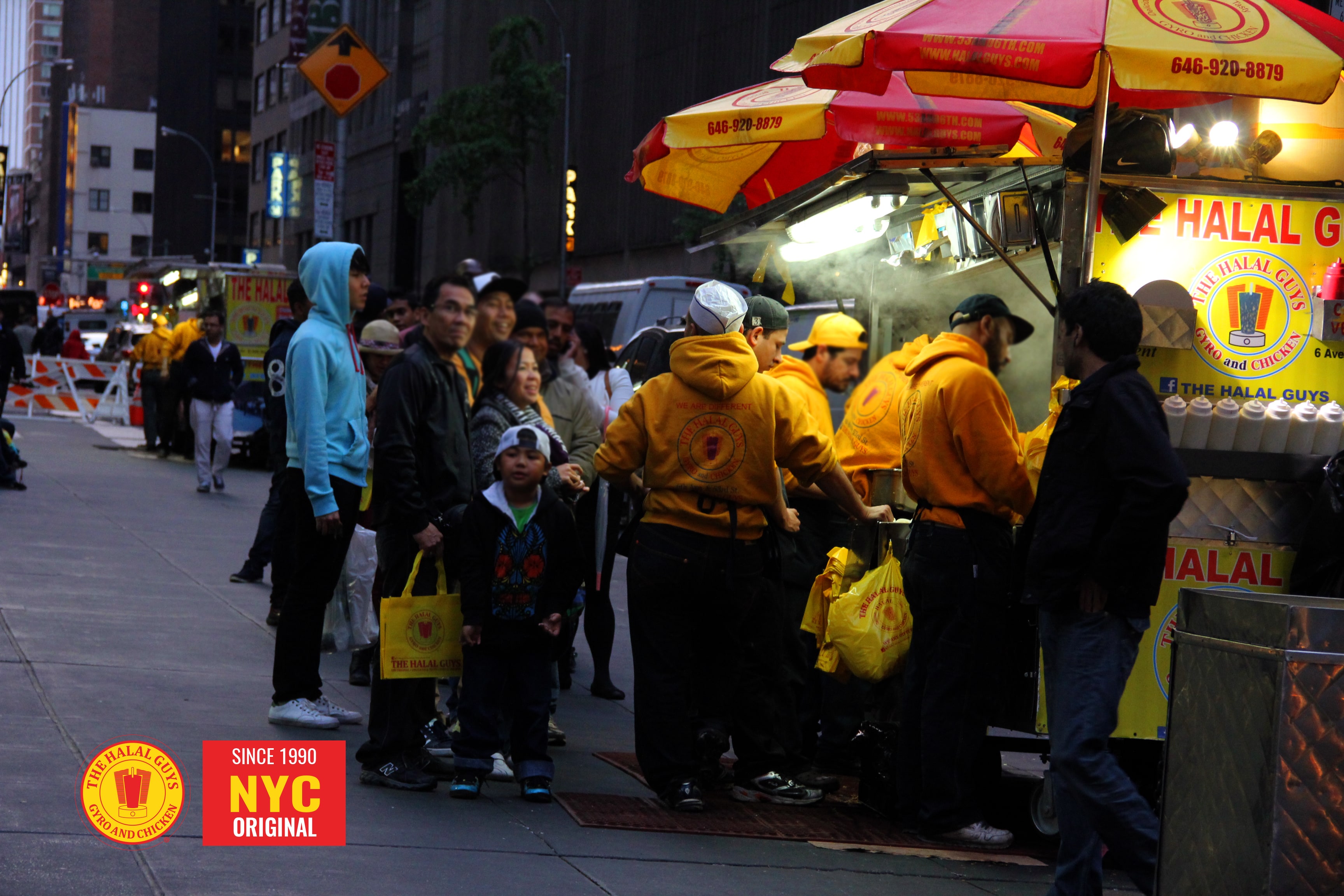
When three Egyptian immigrants, Mohammed Abouelenein, Abdelbaset Elsayed and Ahmed Elsaka, started a food cart, The Halal Guys, on 53rd Street and 6th Avenue in New York City in 1990 to help feed Muslim cab drivers in search of Halal food, they could have never imagined that their food would become a national phenomenon.
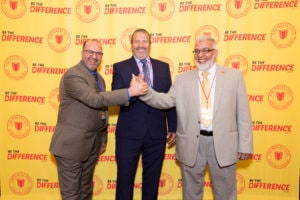
Halal food recently has become more familiar to the mainstream, but it isn’t always the easiest to find outside of a grocery or speciality store. Halal meat, is meat that’s permissible, adhering to Islamic law. The meat is slaughtered in a specific way, similar to kosher meat in the Jewish religion, and slaughterhouses must be designated as halal compliant. Buying the meat can be more expensive because of this and many restaurants have shied away from purchasing it in the past for that reason.
Gordon Food Services estimates halal consumers now spend $20bn on food each year in the US and given that Halal Guys is the largest quick-service restaurant (QSR) serving halal food, it’s no small deal. The owners did not come from a restaurateur background. They were dishwashers and cab drivers that saw a need. At the time it was difficult to find halal food on the street.
New beginnings
Ahmed Abouelenein (below), the son of Mohammed Abouelenein, now serves as CEO. The three original founders are no longer involved in running the business. “Before the brick and mortar, the waiting time in the line for the carts could be close to three hours,” he says.

With so many requests from customers to open in other states and the desire to give its customers a comfortable place to enjoy their food, The Halal Guys decided to expand into brick-and-mortar spaces in 2014. It had been approached prior to this, but the leap from cart to building had been daunting so it waited a few years before making the expansion.
“It was kind of challenging,” says Abouelenein. “We were new to this. It was a case of experimenting to see. Once we opened our New York brick and mortar it showed huge success and lines all day long – it pushed us to go the franchise route and open locations across the country.”
Today The Halal Guys is a fully-fledged international business with 93 franchised brick-and-mortar locations, two corporate owned, five food carts and operations in multiple ghost kitchens. Although going to brick and mortar was a gamble, it paid off, with locations in 17 states across the US, and locations in Canada, Indonesia, South Korea and the UK. There are plans to grow the business aggressively over the next five years with locations across more US states, Vancouver, Canada, France, Germany and more locations across the UK. Most of its locations are franchised with Fransmart and there are a few corporate owned locations. As the operator grows it will continue to franchise, but also get a few more corporate-owned stores under its belt.
Keeping the concept simple
The concept is simple with a menu that revolves around three main proteins in the brick-and-mortar location: chicken, gyro and falafel. At first there were seven or eight options – including shish kabobs, but that soon became cumbersome and it was decided to simplify to chicken and gyros with fries or salad served with white sauce or hot sauce. The meats are seasoned with Middle Eastern spices.
With more space at the brick-and-mortar locations, the menu expanded slightly. “When we opened restaurants we felt we should add something for our customers,” Abouelenein says. So The Halal Guys added baba ghanoush and hummus, and toppings such as tabbouleh, olives and jalapenos. Some locations have dessert options such as baklava, chocolate chip cookies and brownies and soft drinks. Even though there is more space to prepare food, the lesson was learned early on with the carts that more is not always better, so it sticks with what it is has become known for.
There are no plans to expand the menu beyond its core offerings, but there are limited time offers (LTOs) a few times a year with dishes such as spicy lamb. The biggest challenge at first was being able to source the quantity of Halal food needed across so many locations. The QSR purchases four to five million pounds of halal meat per year.
Global reach
“It was challenging to find distributors of halal food everywhere in the country,” says Abouelenein of the specialised designation. “Once we started to open a few stores it became easier with the volume.”
The supply chain internationally was also a challenge – with shipping costs for exporting and importing. Now these locations have been up and running for six years, the company feels comfortable continuing the expansion. For the most part the menu has translated well worldwide with a few hiccups in Indonesia. A menu tweak that has worked well there is the addition of a cheese-covered platter and a panko-fried gyro platter.
“It was a little more challenging [in Indonesia] especially because much of the food in Far East countries is full of flavour, full of spices,” says Abouelenein. “It’s doing well, but at the same time consumers in this country look for more flavourful food, more spice and they have their own dishes that they love to eat.” This has encouraged The Halal Guys to brainstorm other things to add to the menu, but for the most part “their food is their food” and they generally won’t have sweeping changes for any country.
Doubling down on delivery
Going from cart to brick and mortar, The Halal Guys didn’t expect that eventually more than 15% of its business would come through third-party delivery. But times are changing, and it’s evident that the next generation isn’t letting up on their desire for home food delivery. It has been a great for The Halal Guys. It owns a test kitchen in New York that does only third-party delivery and catering, plus two ghost kitchens in California – one through DoorDash, one through Kitchen United.
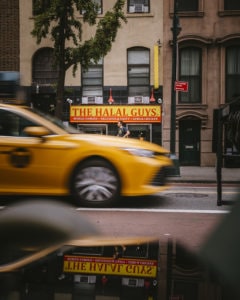
Abouelenein sees benefit in having these ghost kitchens. “First, it’s low rent and gives you the ability to be in areas where you’d have a tough time finding a brick and mortar location,” he says. “It gives the brand more exposure to customers who want to try their food, but are too far from a store and it creates brand awareness for us – it is a great way to market before opening in new areas.”
This is certainly an area it will look to grow in the US as in New York City 30-40% of their business comes from delivery and in California 50-60% from third-party delivery. The Halal Guys hasn’t quite seen the boom in ghost kitchens overseas yet though. With the increase in delivery business it has been taking a look at the way food is packaged to make sure it arrives at peak freshness.
Future focus
For The Halal Guys much of its future is focused on growth, opening 40-50 locations by the end of 2020 and a five-year plan to open 300-400 more locations. With that will come a roll out of a new design that will launch first in its corporate and new franchised locations. Last year it rolled out a new mobile app and loyalty programme where customers can earn points towards free food and drink.
The operator is also working on increased safety inspections. “We are working to double our efforts to make sure the quality and brand stay the same no matter where you eat,” says Abouelenein.
As for those famed NYC carts, they are here to stay, but don’t expect more to pop up around the country unless they are in non-traditional locations such as stadiums and malls. Those carts are a reminder of the humble beginnings of the brand.
“The carts are a landmark and people come from around the world to stand at the carts and eat the food – people love the experience,” Abouelenein concludes. “The carts are what made The Halal Guys.”
Samantha Lande


